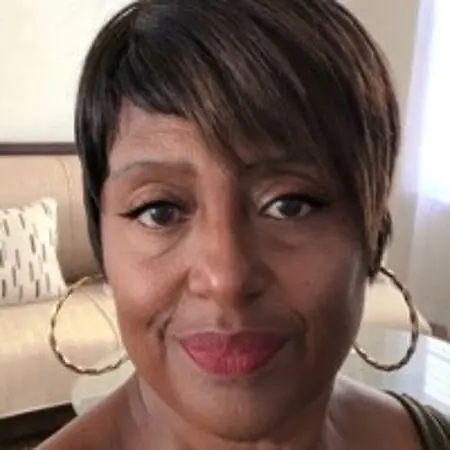Michelle Houston

Michelle Houston, RPR is a seasoned and highly skilled Realtime Captioner with over 40 years of experience in court reporting and realtime communication services. A certified court reporter by training, Michelle spent two decades as an Official Court Reporter, covering civil and criminal jury trials, arbitrations, and family court proceedings. Her expertise in creating precise, verbatim records laid a strong foundation for her transition into captioning services for the Deaf and hard of hearing (D/HoH) community.
In her current role as a Realtime Captioner, Michelle has provided realtime captioning for a range of (D/HoH) consumers, including federal agencies such as the Pentagon, FBI, DOJ, NASA and NIH, as well as high-level venues like Capitol Hill and the White House. Her work also extends to educational institutions, where she supports accessibility for students at Georgetown University Law Center, Harvard, Johns Hopkins Bloomsburg School of Public Health, and more. Whether on-site or virtual, she is committed to delivering accurate and accessible communication that bridges gaps and fosters inclusion.
Beyond her professional accomplishments, Michelle is a proud advocate for accessibility and resilience. A two-time brain aneurysm survivor, she continues to share her story to inspire others and raise awareness. As a founding member of the Global Alliance of Speech-to-Text Captioning and a volunteer for the National Court Reporters Foundation, she remains dedicated to elevating the profession and serving her community with excellence and heart. Recent accomplishment was completing her second triathlon as a ruptured brain aneurysm survivor, the only known survivor to accomplish this.
• Registered Professional Reporter
• Lincoln Business Institute
• Prince Institute of Professional Studies Inc
• National Court Reporters Association
• Black Triathlete's Association
What do you attribute your success to?
I attribute my success to a strong “fight or flight” instinct paired with deep faith in God. This inner drive has guided me to become the nurturing and supportive person I always wished to have in my own life. It fuels my commitment to lead with compassion and resilience every day.
What’s the best career advice you’ve ever received?
In court reporting school, my instructor told me that I took to that machine (stenography machine) like a fish to water; but he also said, you’re going to have to work twice as hard. I knew what he meant without explanation. And he was right.
What advice would you give to young women entering your industry?
My advice to young women entering the industry is to support and uplift one another, especially women of color navigating male-dominated fields. Drawing from my experience working at intelligence agencies, I’ve learned the power of resilience and community. Recently completing a triathlon not only challenged me but also inspired my sons, showing the importance of perseverance both personally and professionally.
What are the biggest challenges or opportunities in your field right now?
One of the biggest challenges in my field is the rise of AI technology, which poses a threat to traditional captioning and court reporting roles. However, there are still significant opportunities, especially in government agencies and academic settings where human accuracy and nuance are essential. The profession remains lucrative, with the added benefit of remote work options, and there is strong demand for skilled human captioners in critical government services.
What values are most important to you in your work and personal life?
The values most important to me in both my work and personal life are advocacy, compassion, and community involvement. I am deeply committed to raising awareness for brain aneurysms, a cause close to my heart, especially given the limited funding it receives compared to other health issues. Through my volunteer efforts and involvement with brain aneurysm awareness organizations, I strive to make a meaningful and immediate impact in my local community.